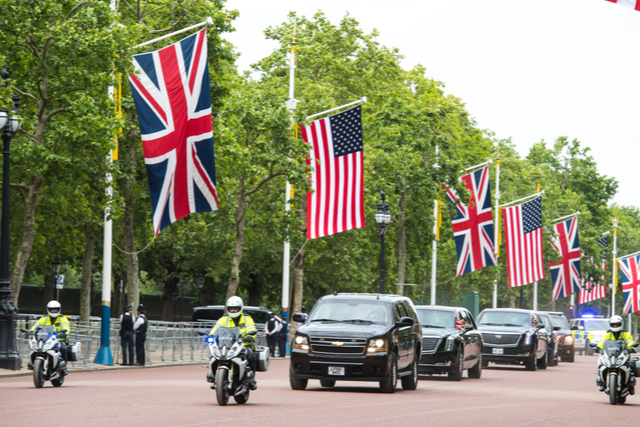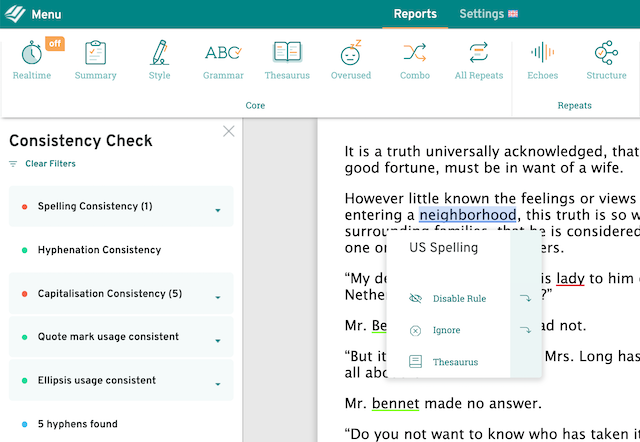
While both Britain and the United States speak English, it can sometimes feel as if we are speaking different languages. The differences in our versions of English can be downright confusing, especially for non-native speakers.
Overall, both versions have more similarities than differences, but there are some key distinctions, which I’ve grouped into four categories. Once you know these, you’ll have a much easier time comprehending the version of English that you don’t speak.
1. Spelling
Spelling is probably the most notable difference between English in the United States and the United Kingdom. Although it doesn’t matter much when you’re speaking or listening, the spelling of words can make writers’ and readers’ heads spin.
Many words in Britain include the letter “u” after the letter “o.” For example, you might see “colour” or “honour.” In America, that “u” is dropped in order to make American English as clear and streamlined as possible.
Americans tend to use the letter “z” when British people use an “s,” as in the word “organize/organise.” Words like “theatre” and “metre” in the U.K. are spelled “theater” and “meter” in the U.S. The British also use a “t” at the end of many past tense verbs (e.g. “learnt”) while Americans use the “-ed” (e.g. “learned”).
You’ll find the double “l” in Great Britain, as in “travelled,” but Americans decided the extra “l” is unnecessary. And some words are just spelled very differently, like “grey” and “gray” or “kerb” and “curb.”
2. Vocabulary
Another major difference between British and American English is vocabulary. Sometimes our different words are easy to figure out, while other times it changes the meaning entirely! Let’s take a look at a few notable vocabulary differences. For this list, I have placed the American version first and the British version second.
- vacation vs. holiday
- trunk (of a car) vs. boot
- sneakers/tennis shoes vs. trainers
- pants vs. trousers
- underwear vs. pants
- soccer vs. football
- band-aid vs. plaster
- apartment vs. flat
- crib vs. cot
- gray vs. grey
If you’re a Brit writing for a U.S. audience (or vice versa), using the right terminology will make sure your readers stay focussed on what you’re writing instead of wondering what a boot has to do with a car.
3. Grammar
We also have different grammar rules and guidelines, which is why you can switch ProWritingAid between U.S. English and British English.
One major grammatical difference involves plural noun and verb agreement. A collective noun is a type of noun that sounds singular (i.e. it doesn’t end in “s”) but is made up of many individuals. Examples include “team,” “band,” “government,” and “staff.” In the United States, a collective noun is always followed by a singular verb. It’s only correct to say “the team is winning.” However, it is correct to say “the team is winning” or “the team are winning” in the U.K.
Prepositions are also used differently at times. In the U.S, I say I studied anthropology in school, but in Britain I would say I studied it at school. In America, we do things on the weekend, while the British do things at the weekend. These aren’t the only prepositions that differ, and this is likely one of the last things you will pick up fluently because there are so many nuances.
British English speakers also use the present perfect tense more often than Americans, who frequently use the simple past tense. For example, a British person might say, “I have eaten dinner,” while an American might say, “I ate dinner.”
These are just a few of the grammatical differences between the U.S. and British versions of English, but there are many more!

4. Pronunciation and Accents
Accents are complicated because there is no one British or American accent. There are many regional accents within each country. However, there are a few key differences between the two accents in regards to pronunciation.
In general, British accents drop the R sound in words unless it’s at the beginning. However, there are exceptions to this. People from the northern regions of the U.K. pronounce more Rs, and Bostonians in the U.S. drop the Rs. But you wouldn’t confuse these two dialects for being from another country!
We also pronounce our vowel sounds differently, especially O and A sounds. Most people aren’t familiar with linguistic codes for pronunciations, so it’s difficult to explain through writing. Here is a great video that highlights many of the vowel sound differences:
There are other random pronunciation differences, as well. Americans use a short I sound on words that end in “ile” like “mobile,” while Brits use a long I sound. The word “garage” is another big difference. In American, we put the emphasis on the second syllable and the second G is said with a “zh” sound. In Britain, the emphasis is on the first syllable, and they use a long A sound for the first A. There’s also the word “herb.” British people pronounce the H, but Americans do not.
What are some of the most confusing differences between British and American English? Let us know in the comments.
Worried about inconsistencies?
ProWritingAid’s Consistency Check will highlight where you’ve mixed U.S. and U.K. spellings in your document so you can make your usage consistent.

Never mix up your colours and colors again!

